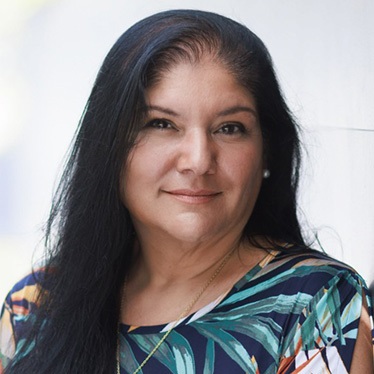Alumni Spotlight: Develop Real-World Adaptable Skills for Improving Communities Around the World
September 1, 2019
Foreign Affairs
as seen in the September/October 2019 issue of Foreign Affairs
The way Roza Vasileva sees it, the future is data: in particular, data gathered by governments—local, regional, national, international—and shared with citizens to make their communities, and their countries, better.
Roza’s desire to make the world a better place drove her to study in the United States as a Fulbright Scholar and to launch a career spearheading open data in more than a dozen countries. What made that happen, more than anything, were her experiences at the No. 1 ranked Maxwell School of Syracuse University.
As she puts it, “Maxwell was life changing for me, in terms of discovering what I should be doing with my life.”
Roza is an information and communication technology (ICT) and open data consultant at the World Bank—a Maxwell internship that turned into a career—with an eye toward her Ph.D. We caught up with her before her latest trip to Tanzania.
What is open data’s role in international development?
Open data for government is an initiative to release raw data for use in everyday applications. In Tanzania, we are working with geospatial data in a range of projects: participatory mapping, using drones for collecting high-resolution geodata, and developing flood preparedness plans with communities.
Technology is developing so fast—it’s fascinating seeing how it can help communities.
“Maxwell was life changing for me, in terms of discovering what I should be doing with my life.”
Roza Vasileva '13 M.P.A./M.A.I.R.
ICT and Open Data Consultant, The World Bank
You graduated before Maxwell launched a certificate in Data Analytics for Public Policy and the Autonomous Systems Policy Institute. How did the school prepare you for these rapidly evolving fields?
I remember when I started at the World Bank, my boss said to me, “You don’t have any background in ICT. What are you doing here?” Six years down the road, I’m still here; he doesn’t want to let me go.
My interest in ICT began during a class in which we discussed how to apply a range of technologies in government work. Then, Maxwell gave me a push—especially through the internship at the World Bank—to explore ICT for development. Part of my assignment was to pilot, in Russia, a new methodology they were developing: the Open Data Readiness Assessment, which we’ve since implemented in dozens of countries.
Every day, I use my leadership and program management training from Maxwell, including budgeting, proposal writing, identifying and framing problems, program evaluation, and managing people and teams. I often have flashbacks of Maxwell professors and their modules!
One of the benefits of Maxwell is its campus in Washington, D.C., where students take classes and engage in high-profile internships. What was your experience like?
It was a big draw for me. I took classes in international programs and foreign affairs, all in the evening, while earning credit for the World Bank internship during the day.
Maxwell is also famous for networking. It’s one of the key skills they instill. We established an alumni network at the World Bank that meets regularly. While I was in D.C., our numbers jumped from 20 to 50 to over 80 alumni, who stay in touch and help each other.
Related News
School News

Dec 19, 2024
School News

Dec 11, 2024
School News

Dec 10, 2024
